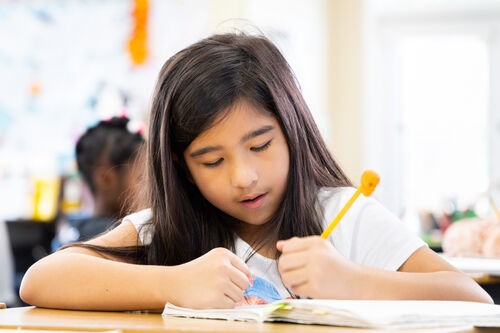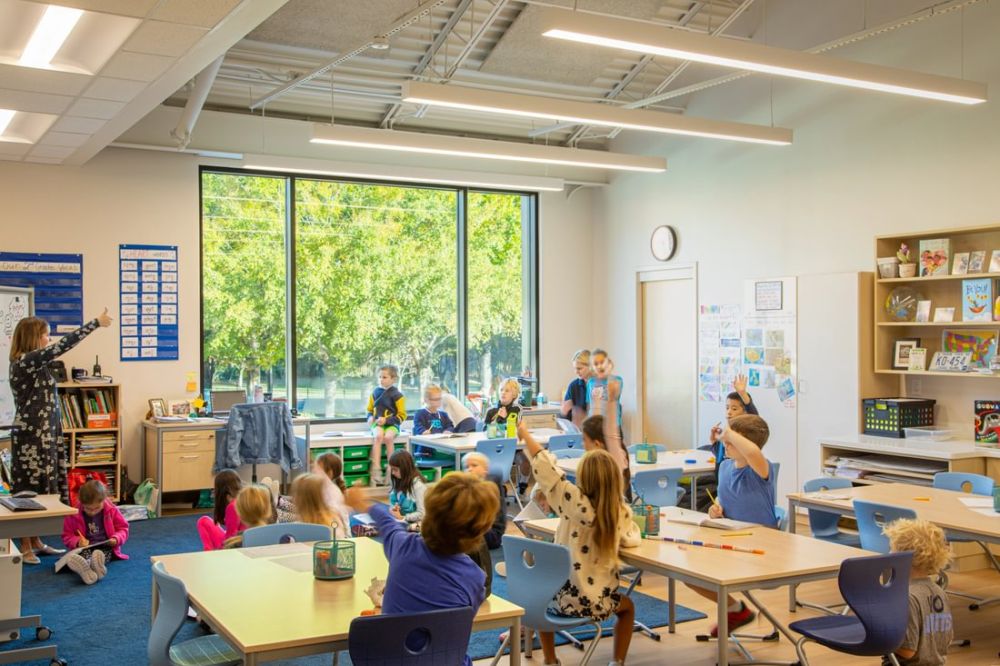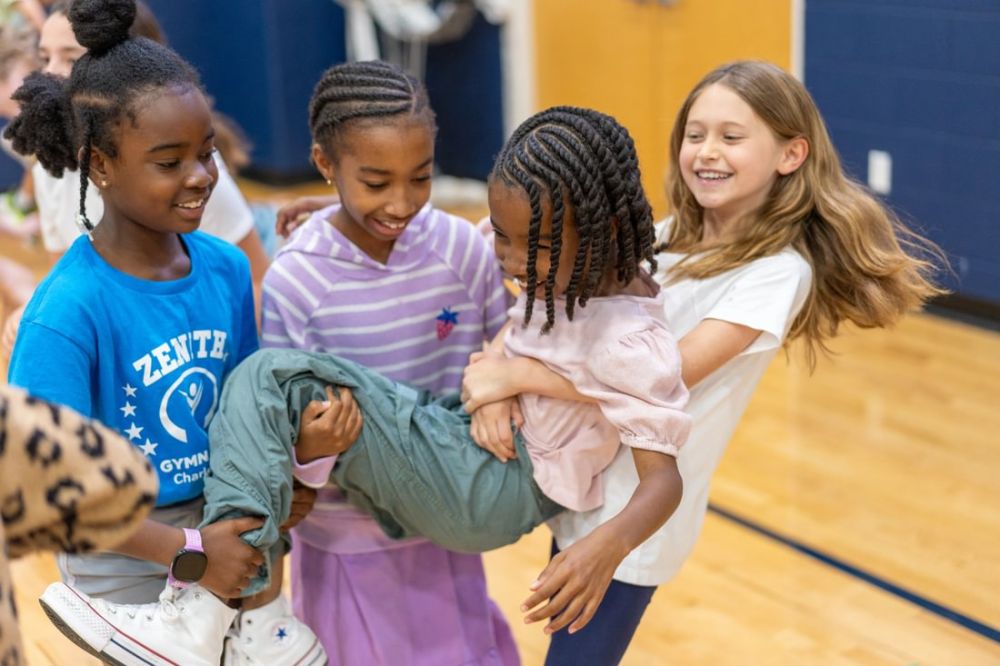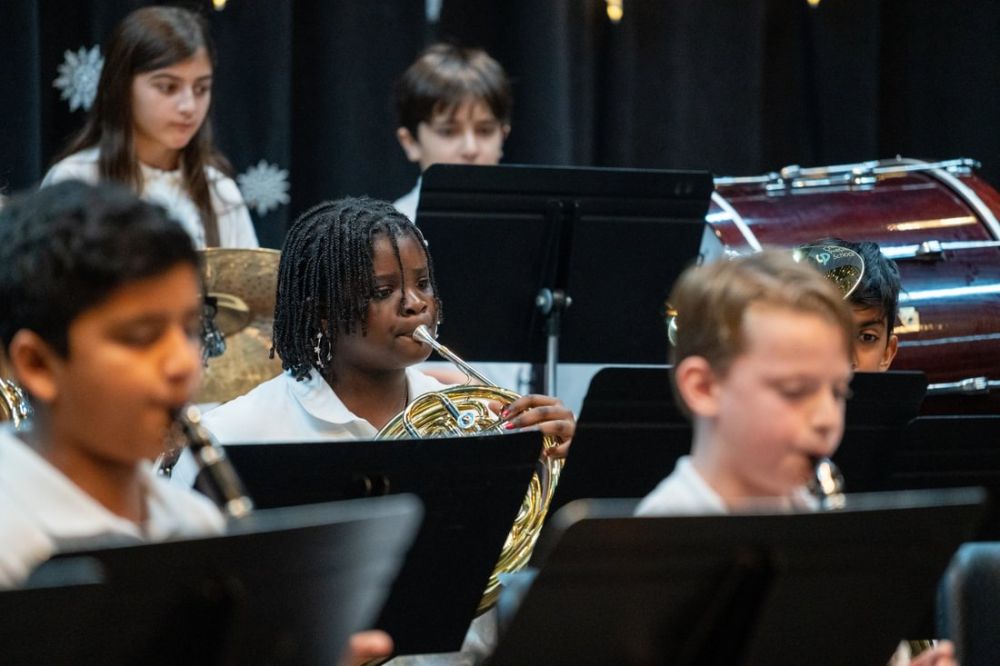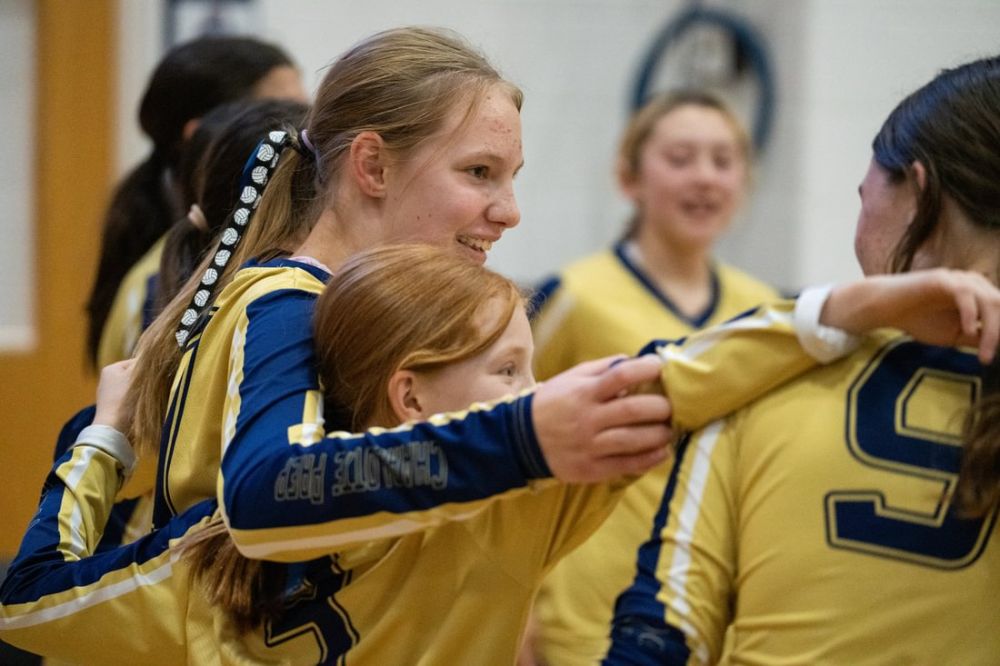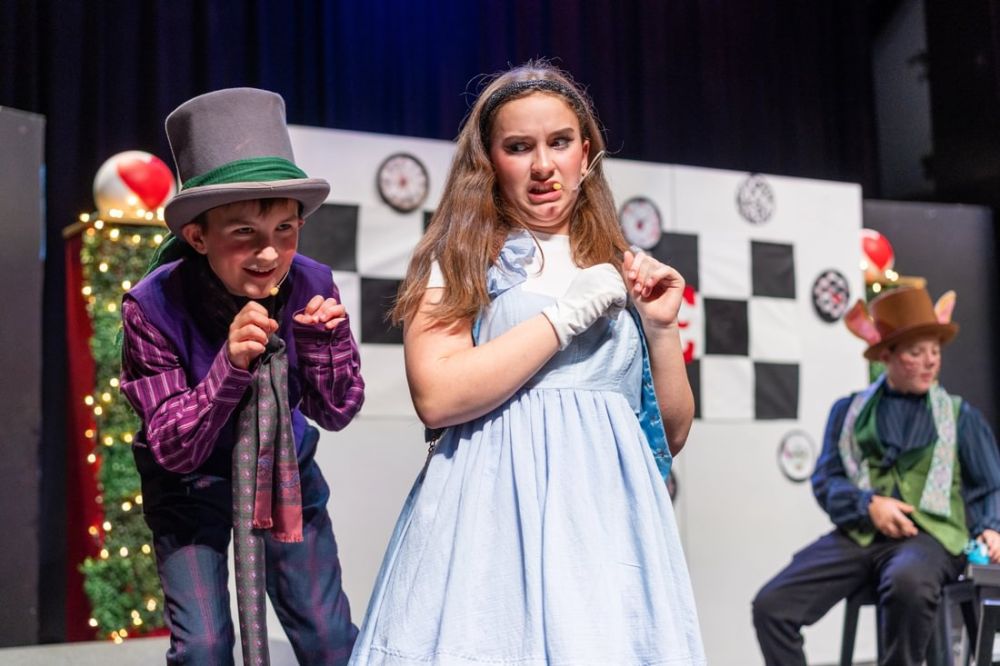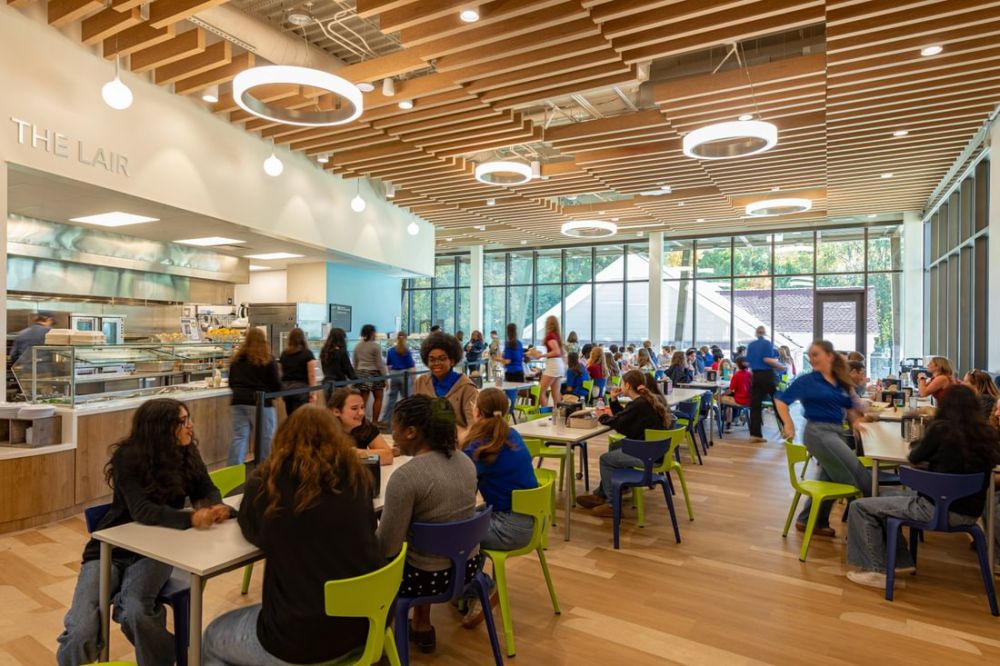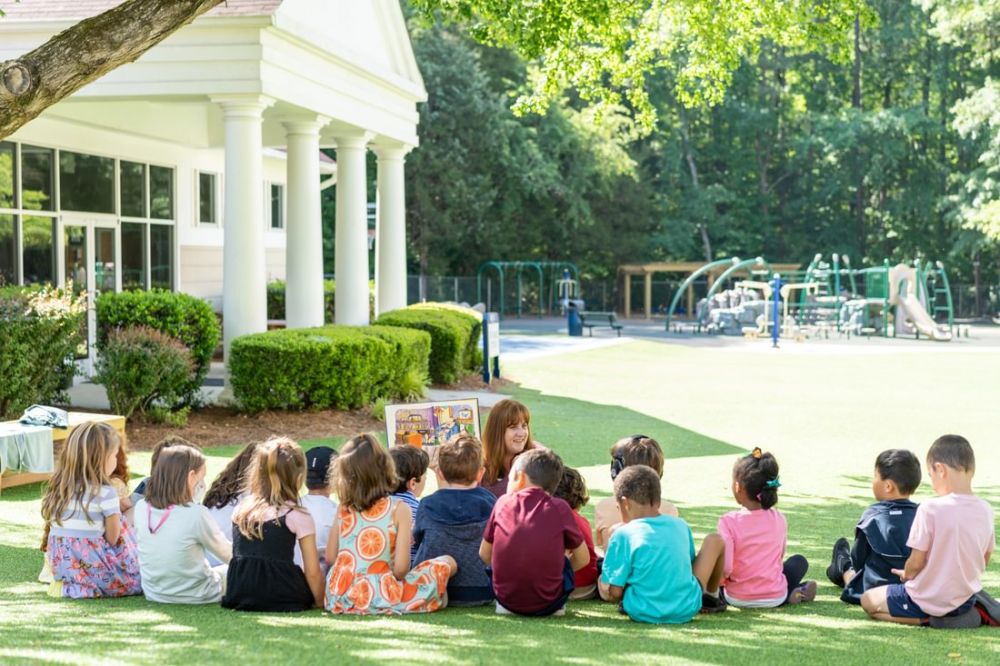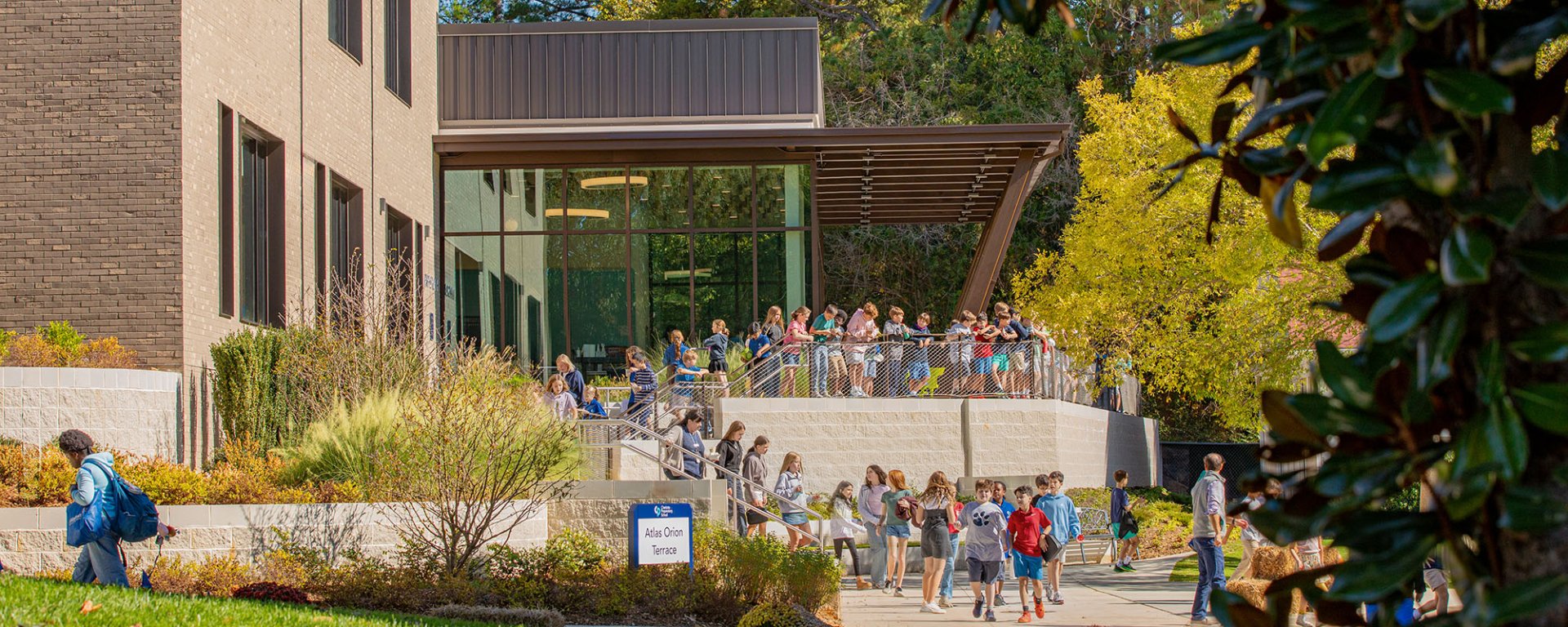The Power of Reflection
October 19th, 2022
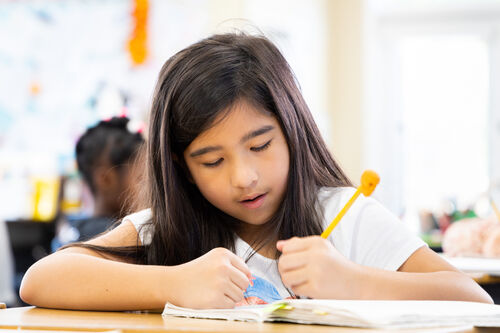 The famed educational philosopher John Dewey wrote, “we do not learn from experience; we learn from reflecting on experience.” This is an important distinction, especially for a school like ours that values experiential education. We know students learn best when they engage with real-world challenges; experience truly is a profound teacher.
The famed educational philosopher John Dewey wrote, “we do not learn from experience; we learn from reflecting on experience.” This is an important distinction, especially for a school like ours that values experiential education. We know students learn best when they engage with real-world challenges; experience truly is a profound teacher.
But as Dewey notes, reflecting on and learning from experience is what fosters student growth and understanding, and excellent teachers facilitate ample student reflection. Teachers know lessons become more meaningful and relevant when students think about their experiences.
For example, a science lesson built around observing a particular ecosystem is valuable in and of itself. Students will certainly learn from this experience – its novelty is compelling, as is being in nature and carefully observing what is happening. It is the post-experience reflections, however, that help students make sense of their observations, compare notes with other students, and deepen their understanding.
Perhaps the most valuable experiential learning comes from failure and making mistakes. Failure is an inherent part of life and can lead to real learning and understanding, but it becomes fully instructive only when reflected upon. Dewey has it right – we learn by doing and then learn even more by reflecting on our experiences.
Children are naturally primed for reflection because they want to make sense of their experiences and do so by asking lots of questions. Good teachers know that asking and answering questions is at the heart of excellent teaching, and parents, who may sometimes wilt at the frequency of questions from their children, simply need to remember that children just want to understand themselves and the world in which they live.
We – parents and teachers – can help children gain this understanding by being aware of the power of reflection. It boils down to a simple formula: experience + reflection = understanding.
More News from Charlotte Prep
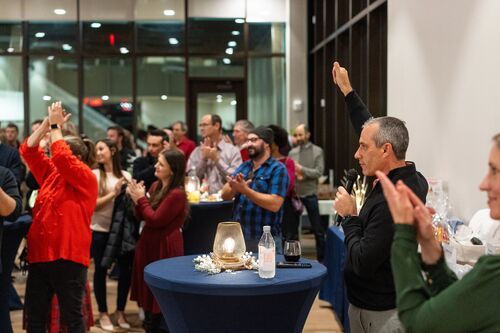 Dec11School Spirit on Full Display
Dec11School Spirit on Full DisplayThe sprint to the holidays has offered many joyful opportunities to strengthen connection and deepen community among our students, families, and staff.
See Details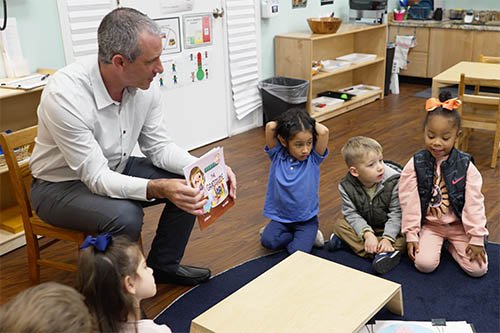 Nov11A Season for Gratitude
Nov11A Season for GratitudeAs we welcome this season of giving thanks and giving back, I couldn’t help but draw parallels between the themes The Gratitude Jar and our mission at Charlotte Prep.
See Details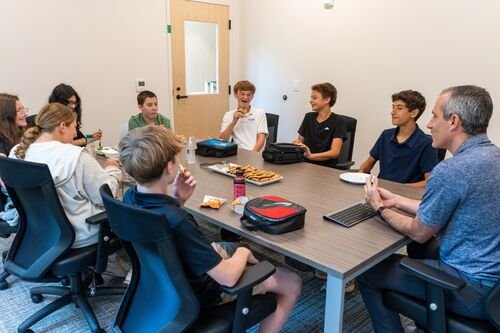 Oct23Building a Culture of Feedback
Oct23Building a Culture of FeedbackSince I arrived at Prep, I have been pondering the question: how does a head of school help build a robust school culture? I believe one of our most powerful tools for this purpose is fostering a continuous feedback loop that includes our students and faculty.
See Details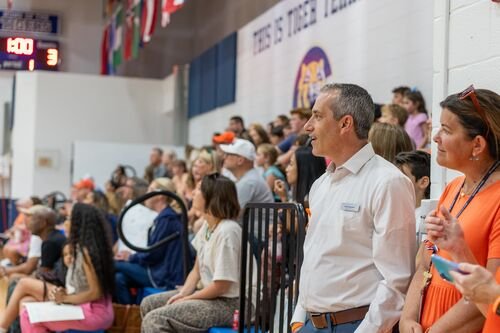 Sep25First Impressions: What does community mean at Prep?
Sep25First Impressions: What does community mean at Prep?In my first month, I have conducted over thirty 1:1 meetings with faculty/staff, had lunch with nearly every 8th grader, and attended countless Prep events in search of the answer to the question “What does community mean at Prep?”
See Details

